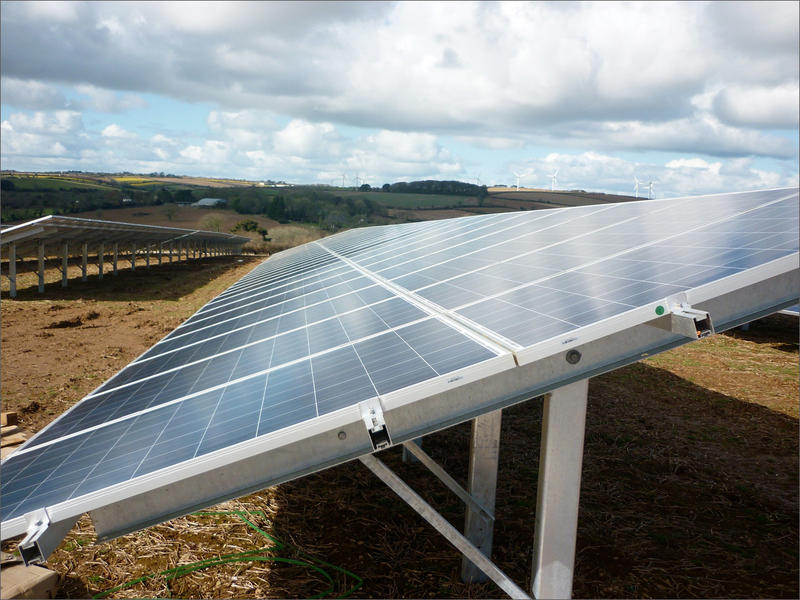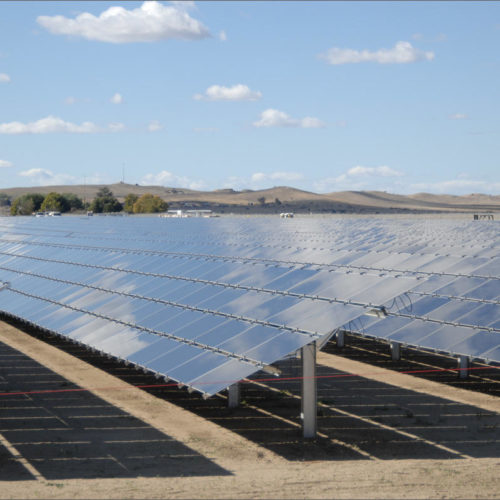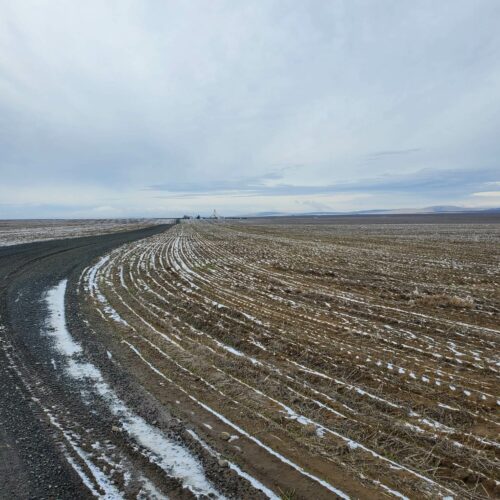
Home On The (Solar) Range: Energy Developers Clamor For Washington’s Grazing Land
Listen
Renewable energy developers are showing interest in converting public grazing lands in sunny central Washington into large solar farms.
The state Department of Natural Resources says around 15 companies have expressed interest in long-term leases of public rangeland properties, primarily in Klickitat County but also in Yakima, Grant, Douglas and Kittitas counties.
The proposals involve utility-scale solar arrays from 40 acres in size on the low end to potentially as large as 2,400 acres. A lot of the public lands of interest are already leased for cattle grazing.
“We have the right to cancel a lease for a higher or better use,” DNR Central Region Leasing Manager Chad Unland said in an interview.
He said the grazing leases typically net the state less than $2 per acre per year.
“That’s not super profitable, as you can see,” observed Kathryn Mink, the assistant regional manager for agriculture at DNR’s office in Ellensburg.
The state agency estimates it could earn $600-$1,000 per acre per year from solar.
“It’s an amazing difference, which is why we feel it’s worth doing and the trust mandate calls for it,” Mink said.
DNR manages the grazing lands under a mandate to maximize revenue for school construction and a few other public trust funds.
Mink said her office is aiming to put the first couple parcels suitable for commercial solar energy out to bid later this year. The identified properties are flat and near existing electric transmission lines and substations.
Unland said the host counties would get a slice of the pie through leasehold tax.
Related Stories:

In green energy boom, one federal agency made the Yakama Nation an offer they had to refuse
Elaine Harvey, Jeremy Takala, Simone Anter. J.D. Reeves/High Country News Read B. ‘Toastie’ Oaster | High Country News This story was originally published by High Country News. When Yakima Nation leaders

Solar development maps: Where is there less conflict?
File photo of solar panels. (Credit: Sarah Swenty / U.S. Fish and Wildlife Service) Listen (Runtime 1:01) Read Not everyone loves renewable energy development, but a new project in Washington

Clean energy project proposal in the Columbia Basin generates controversy and support
Driving a long gravel road on a tour of the Horse Heaven Hills. Fallow fields and wheat with mountains in the distance. (Credit: Dori Luzzo Gilmour / NWPB) Listen (Runtime















